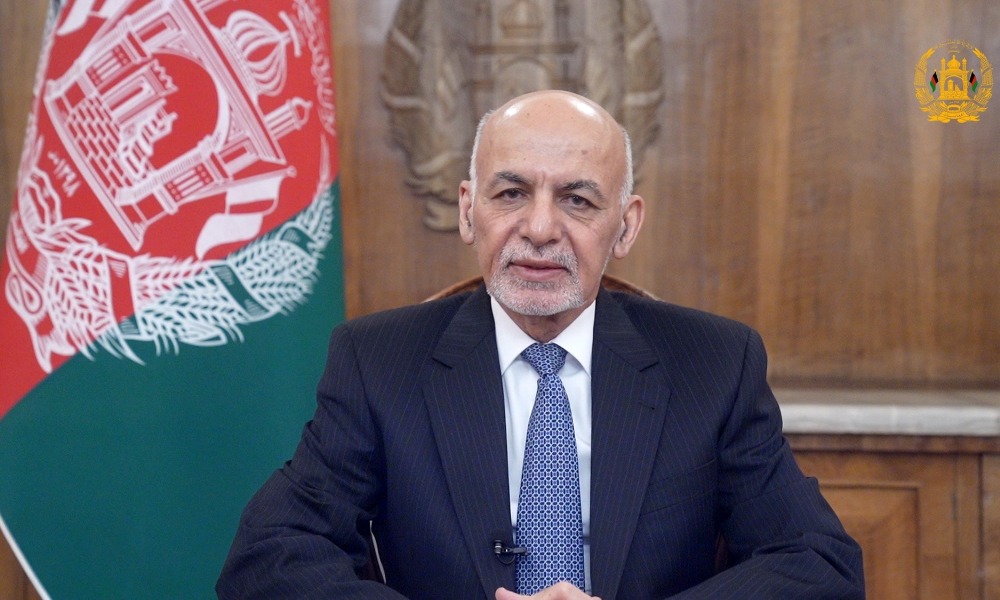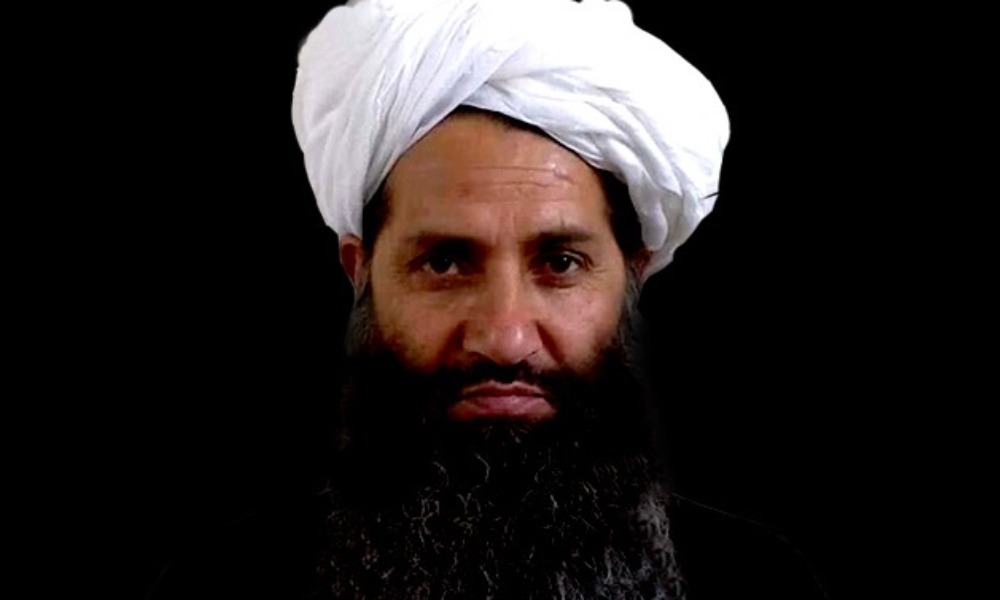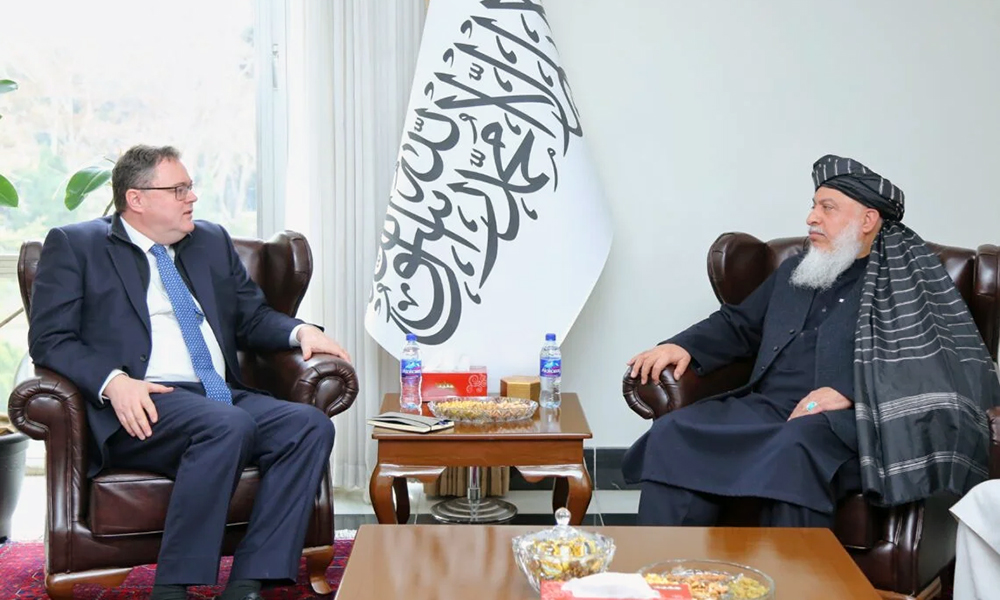Latest News
Ghani tells summit Afghanistan extremely vulnerable to climate change

President Ashraf Ghani said this week that Afghanistan has tremendous potential to produce clean energy and develop an eco-friendly green industry.
Addressing the virtual 2020 Climate Ambition Summit Ghani said: “We have some of the most abundant supplies of sun, water, and wind [in Afghanistan].”
Ghani noted that if all energy sources are harnessed, “this could collectively produce 300,000 megawatts of power.”
He stated that the government is building hydropower stations across the country and scoping the potential for wind and solar farms.
“We recently signed an agreement with Siemens Energy that positions us to become the regional hub for reliable, sustainable and affordable energy,” he noted.
“We have the potential to serve as a platform for environmental cooperation and coordination across the region,” Ghani pointed out.
He also stated that Afghanistan is one of the most vulnerable countries in the world where climate change is concerned.
“For one, the cycle of drought has drastically shortened, from a 33-year cycle to now a five-year cycle. Our seasonal rainfall now comes in spring instead of winter, and with it, lethal floods and destructive erosion,” Ghani said.
He added that the southeastern part of the country is now believed to have gotten 1.5 degrees warmer in the last 40 years and deforestation has been rampant due to the last four decades of conflict.
The Climate Action Summit was held over two days this week and 70 Heads of State, along with regional and city leaders, and heads of major businesses, delivered a raft of new measures, policies, and plans, aimed at making a big dent in greenhouse gas emissions, and ensuring that the warming of the planet is limited to 1.5C.
The number of countries coming forward with strengthened national climate plans (NDCs) grew significantly today, with commitments covering some of the world's biggest emitters on display.
At least 24 countries announced new commitments, strategies, or plans to reach carbon neutrality, and a number of states set out how they are going even further, with ambitious dates to reach net-zero: Finland by 2035, Austria by 2040, and Sweden by 2045.
Pakistan announced that it’s scrapping plans for new coal power plants, India will soon more than double its renewable energy target, and China committed to increasing the share of non-fossil fuel in primary energy consumption to around 25 percent by 2030.
The US was not however represented, as Donald Trump’s administration shunned the meeting, but president-elect Joe Biden issued a statement promising to hold a major event on the climate in his first 100 days in office.
Latest News
Human traffickers should be sentenced to 1 to 3 years in prison: IEA leader

The Leader of the Islamic Emirate has issued a decree instructing the Ministry of Interior Affairs to prevent human trafficking and to arrest and refer culprits to military courts.
The decree containing six articles says that that military courts should sentence human traffickers to one year in prison for the first time, two years if repeated for the second time and three years if repeated for the third time.
The ministries of Hajj, information, telecommunications, borders, propagation of virtue, as well as religious scholars are asked to inform the public about the dangers and adverse consequences of travelling through smuggling routes.
The decree comes as the rate of migration has increased following the political change in Afghanistan in 2021.
Latest News
Eight Afghan migrants die as boat capsizes off Greek island

Eight Afghan migrants died after a speedboat carrying migrants capsized off Greece's eastern island of Rhodes on Friday, the Associated Press reported.
Greek authorities said that the capsizing was the result of the boat’s maneuvering to evade a patrol vessel.
A total of 18 migrants — 12 men, three women and three minors — all Afghan nationals, were rescued, Greece's coast guard said Saturday. The dead were also from Afghanistan, it said.
Some migrants remained hospitalized, with one in critical condition, authorities said.
Two Turkish citizens, ages 23 and 19, were arrested as the suspected traffickers. The boat sank after capsizing, the coast guard said.
The sinking off Rhodes was the second deadly incident involving migrants in the past week.
Seven migrants were killed and dozens were believed missing after a boat partially sank south of the island of Crete over the weekend — one of four rescue operations during which more than 200 migrants were rescued.
Latest News
Norwegian Chargé d’Affaires meets with IEA deputy foreign minister
Welcoming the diplomat’s visit to Kabul, Stanikzai underscored the importance of political relations between Afghanistan and Norway, the foreign ministry said in a statement.

The Norwegian Chargé d’Affaires for Afghanistan, Per Albert Ilsaas, on Saturday met with IEA’s Deputy Foreign Minister for Political Affairs, Sher Muhammad Abbas Stanikzai, in Kabul.
Welcoming the diplomat’s visit to Kabul, Stanikzai underscored the importance of political relations between Afghanistan and Norway, the foreign ministry said in a statement.
In addition to focusing on bilateral political, humanitarian, and other pertinent issues, the two sides expressed hope that continued engagement would lead to constructive solutions to related issues.
This comes two weeks after the Foreign Ministry Spokesman Abdul Qahar Balkhi expressed disappointment regarding the decision by the Norwegian government to downgrade diplomatic relations with Afghanistan.
Balkhi said in a post on X that such decisions should not be linked with internal affairs of other countries.
“Diplomatic engagement is most effective when it fosters mutual understanding and respect, even amidst differing viewpoints,” he stated.
“Access to consular services is a fundamental right of all nationals. We strongly urge all parties to prioritize this principle in the spirit of international cooperation,” he added.
-

 Sport4 days ago
Sport4 days agoZimbabwe’s opening ODI against Afghanistan abandoned
-

 World4 days ago
World4 days agoNorth Korean troops suffer 100 deaths, struggling in drone warfare, South Korea says
-

 Latest News2 days ago
Latest News2 days agoAfghan men must stand with women to support viable future of country: US envoy
-

 Latest News3 days ago
Latest News3 days agoTwo horror accidents on Kabul-Kandahar highway leave 52 dead
-

 Sport3 days ago
Sport3 days agoAfghanistan crush Zimbabwe by 232 runs in second ODI
-

 Regional5 days ago
Regional5 days agoIran’s president to make rare visit to Egypt for D-8 summit
-

 International Sports4 days ago
International Sports4 days agoLanka T10: Kandy Bolts in at 4th spot in playoffs after thrilling day
-

 Tahawol5 days ago
Tahawol5 days agoTahawol: Latest developments in Syria reviewed
























